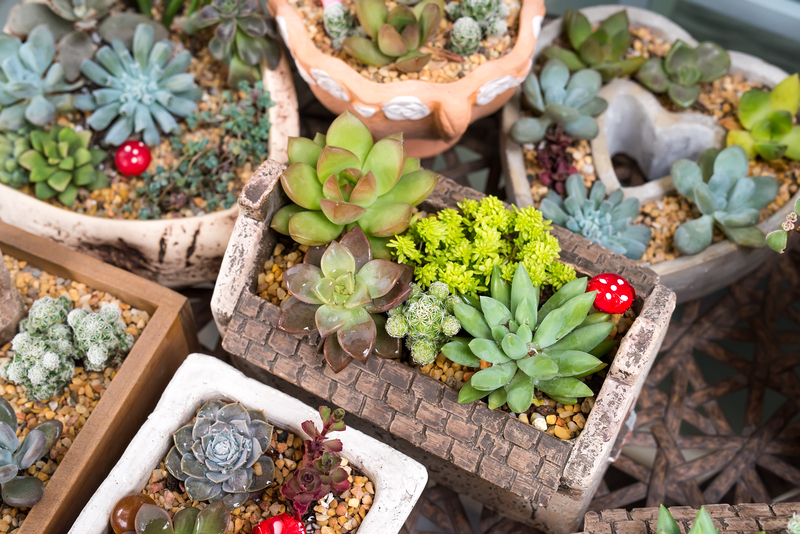Keep Your Plants Thriving: Winter Protection Strategies
Winter can be a magical season, but for gardeners and plant lovers, the cold months bring a host of challenges. To ensure your beloved plants survive and flourish, understanding the best winter protection strategies for plants is crucial. This comprehensive guide explores effective solutions and helpful tips so you can keep your garden vibrant through the chilliest months.

Why Winter Protection For Plants Is Essential
When temperatures drop, many plants become susceptible to frost, cold winds, and sudden temperature fluctuations. Protecting your plants in winter isn't just about survival; it's about enabling strong growth come spring. Overwintering plants correctly means less work and greater rewards once warmth returns.
- Frost Damage: Freezing temperatures can rupture plant cells, leaving foliage and stems blackened and stunted.
- Soil Freezing: Roots are sensitive to temperature extremes, and frozen ground can prevent water uptake, leading to dehydration.
- Windburn: Cold winds strip moisture from leaves and needles, causing them to brown and die back.
- Winter Sunscald: Intense winter sunshine followed by rapid cooling can literally split bark and foliage.
Types Of Plants That Need Winter Protection
Not every plant needs the same level of care. Here's a breakdown of those that need winter plant care:
- Tender Perennials: Such as cannas, dahlias, and geraniums--these cannot survive frost without protection.
- Evergreens: Keeping evergreen plants thriving in winter requires shielding them from dehydrating winds.
- Young Trees & Shrubs: Their bark and roots are particularly vulnerable to frost cracks and freeze/thaw cycles.
- Container Plants: Containers do not insulate as well as ground soil, so roots can freeze more easily.
- Vegetable Crops: Winter greens, root vegetables, and any fall-planted crops benefit from season-extending strategies.
Assess Your Garden's Microclimate
Every garden has its unique environment. Areas near walls, fences, or big trees may provide extra warmth or shelter, while open, exposed spots are more at risk. Understanding your garden's microclimates lets you plan winter protection for garden plants more effectively.
- South-facing walls capture sun and radiate heat at night, making them ideal for less hardy species.
- Low points can collect cold air and increase frost risk.
- Windbreaks like hedges or fences can reduce drying winter winds.
Proven Winter Plant Protection Strategies
1. Mulching For Warmth and Moisture Retention
Mulching is one of the most effective plant winter protection strategies. Lay a thick layer (2-6 inches, depending on plant type) around the roots, but avoid piling it against the stems.
- Bark and Wood Chips: Great for insulating perennials and shrubs.
- Straw or Leaves: Ideal for vegetable beds and fragile ground covers.
- Pine Needles: Acid-loving plants (like blueberries) benefit from pine needle mulch.
Mulching keeps the soil temperature steady, conserves moisture, and protects against soil heave caused by freeze/thaw cycles.
2. Covering Plants: Row Covers, Cloches, and Blankets
Physical barriers are essential to protect your plants from frost. Here are common options:
- Row Covers (Frost Cloth): Lightweight fabric allows sunlight in but traps heat and deters frost.
- Garden Fabric or Horticultural Fleece: Flexible and reusable, these can be draped over beds or individual plants.
- Plastic Tunnels (Hoop Houses): Provide extra insulation for veggie patches and tender crops.
- Cloche or Bell Jars: Great for young seedlings or potted plants. Use glass or heavy-duty plastic versions.
- Old Sheets or Blankets: Can be used in a pinch for sudden frosts but remove by midday to prevent overheating.
Tip: Always secure covers so they don't blow away, and ensure plants have air circulation to avoid rot.
3. Wrapping Trees and Shrubs
Delicate or young trees benefit from extra attention throughout winter:
- Tree Wraps: Use burlap or special tree protectors to insulate trunks, guarding against sunscald and split bark.
- Windbreak Screens: Erect burlap screens on the windy side of sensitive shrubs.
- Wire Cages + Mulch: Surround young trees with wire mesh and fill with leaves for extra insulation.
Remove wraps in early spring to prevent pests and allow new growth to harden naturally.
4. Protecting Potted and Container Plants in Winter
Container plants are particularly vulnerable. Here's how to give them maximum winter protection:
- Bring sensitive pots indoors--sunrooms or unheated garages are ideal for overwintering.
- Cluster pots together close to the house for extra warmth.
- Wrap pots with bubble wrap, hessian, or move them into larger insulating containers filled with straw or mulch.
- Elevate pots off the ground to prevent them freezing to the surface and allow for drainage.
Note: Water containers sparingly in winter, but don't let soil dry out completely.
5. Smart Watering Techniques
Winter watering is a balance. Plants need less water, but winter winds and bright days can dry soil quickly.
- Water before a hard freeze--moist soil retains heat better than dry soil.
- Avoid watering late in the day; morning is best so excess can drain before nightfall.
- For evergreens, water occasionally on mild days to prevent desiccation.
6. Pruning With Purpose
Careful pruning before winter hits helps prevent snow and ice damage:
- Remove dead or diseased wood to reduce stress on plants under snow load.
- Avoid heavy pruning; removing all green growth exposes plants to cold injury.
- For roses, cut back long canes and secure with ties, especially in windy areas.
7. Choosing Cold-Hardy Plant Varieties
One of the best long-term strategies to keep plants thriving in winter is selecting species well-suited to your climate.
- Check USDA Hardiness Zones: Always choose plants appropriate for your region's lowest average temperatures.
- Seek Out Native Species: Local plants are naturally adapted to survive your winter conditions.
- Look for Proven Winners: Many breeders develop cultivars with enhanced winter resistance.
Pest and Disease Management in Winter
While many pests are dormant in winter, some like voles, rabbits, and fungal pathogens become problematic after the ground freezes. Implement these precautions:
- Install trunk guards on young trees to deter gnawing rodents.
- Clean up fallen leaves and debris; they can harbor fungus and insects through winter.
- Apply dormant sprays to fruit trees to reduce overwintering pests and diseases.
Common Mistakes To Avoid In Winter Plant Protection
- Smothering Plants: Too much cover or mulch can suffocate your garden. Always leave space for air circulation.
- Neglecting Drainage: Waterlogged soils freeze solid, damaging roots. Good drainage is crucial before winter sets in.
- Forgetting to Remove Covers: Leaving covers on during warm spells can trap heat, encouraging soft growth vulnerable to the next freeze.
- Improper Timing: Don't apply winter protection too early--let plants harden off naturally, and wait until the first hard frost.
- Fertilizing Too Late: Late-season feeding can trigger new growth right before a freeze, increasing cold damage.
Extra Tips To Help Your Garden Thrive Through Winter
- Monitor weather forecasts for anticipated extreme lows, and be prepared to implement extra measures at short notice.
- Stay vigilant about removing snow loads--gently brush snow off branches that might break under the weight.
- Plant windbreaks with evergreens or build fences to offer additional shelter in exposed sites.
- Test soil pH and amend if needed; many plants perform better with a slightly acidic to neutral pH, especially after winter.
- Record what works! Every season teaches new lessons, so keep a journal for future reference.

Frequently Asked Questions On Winter Plant Care
Should I water my plants during winter?
Yes, but less frequently. Water only when soil is dry and when the temperature is well above freezing. For evergreens and container plants, occasional watering helps prevent desiccation.
How do I know if my plant has winter damage?
Look for blackened or mushy stems, brittle branches, and brown or crispy leaves in spring. Dead plants may not leaf out at all. Use pruning shears to check for green, healthy tissue beneath the bark.
What is the best mulch for overwintering garden beds?
Bark, wood chips, or shredded leaves are ideal for established beds. Straw is excellent for vegetable gardens, but avoid compacted piles as they can harbor pests.
Does snow help protect plants in winter?
Surprisingly, yes! Snow acts as an insulating blanket, moderating soil temperatures and protecting roots from freeze/thaw cycles.
Conclusion
Winter plant protection is the key to a thriving spring garden. Whether you're nurturing tender perennials, valuable evergreens, or cherished vegetable patches, investing time in the right strategies pays off. Remember, successful winter garden care is a thoughtful blend of preparation, observation, and adaptation. Your plants will thank you with a vibrant display of growth when winter finally melts away.
Stay vigilant, stay informed, and enjoy healthy, happy plants all year long!


